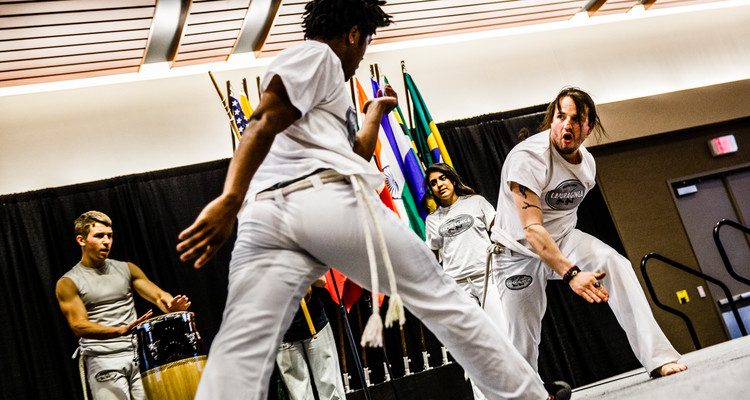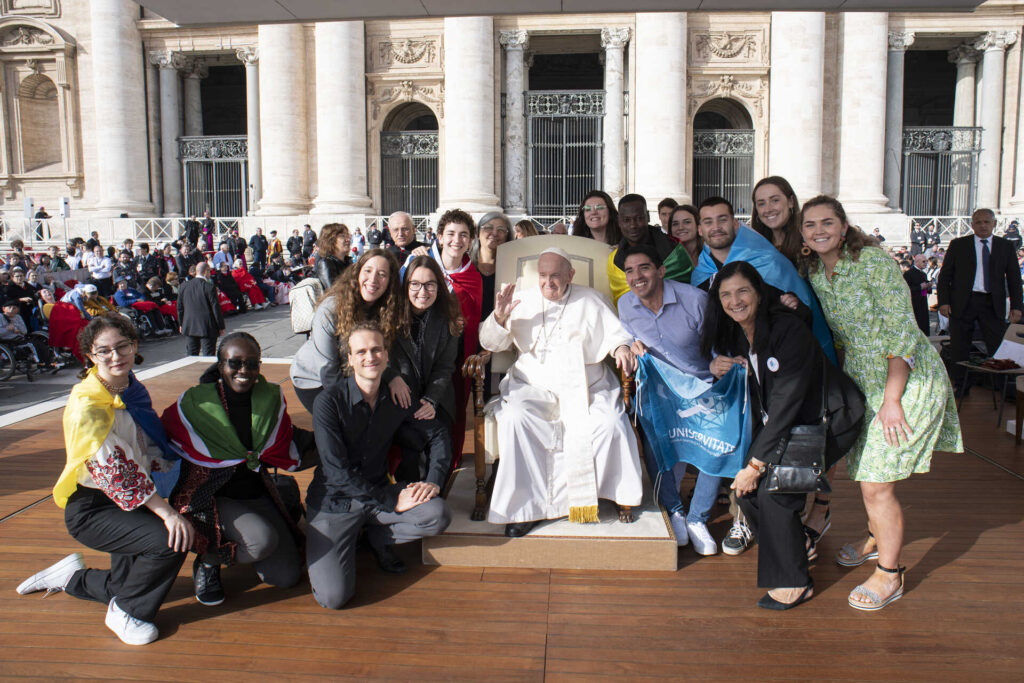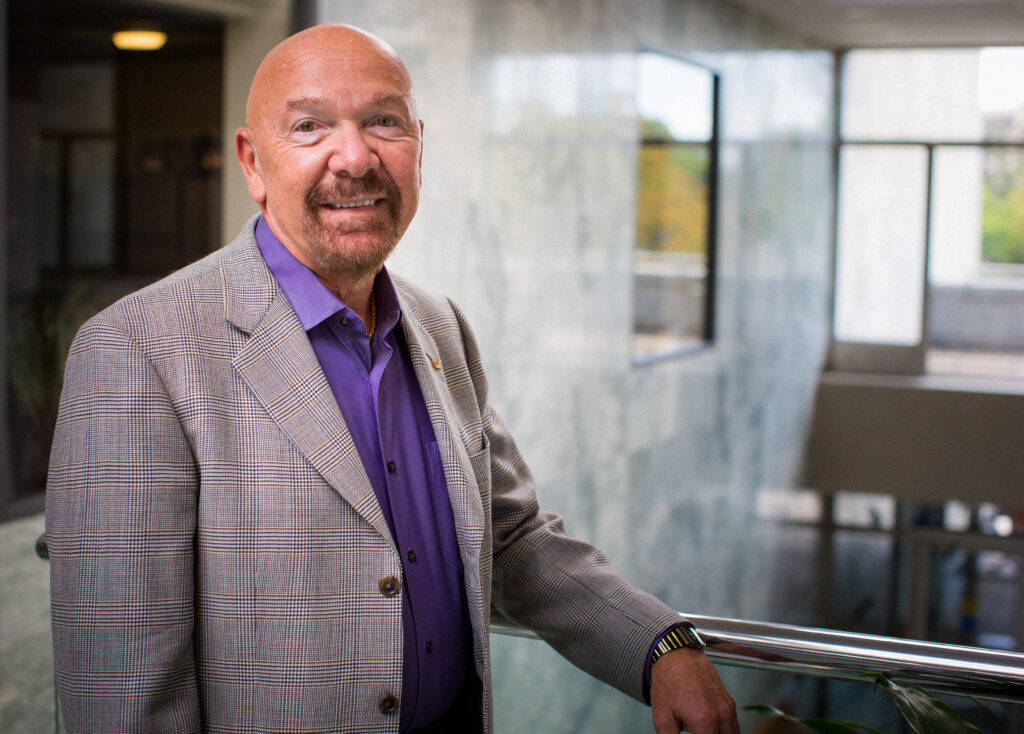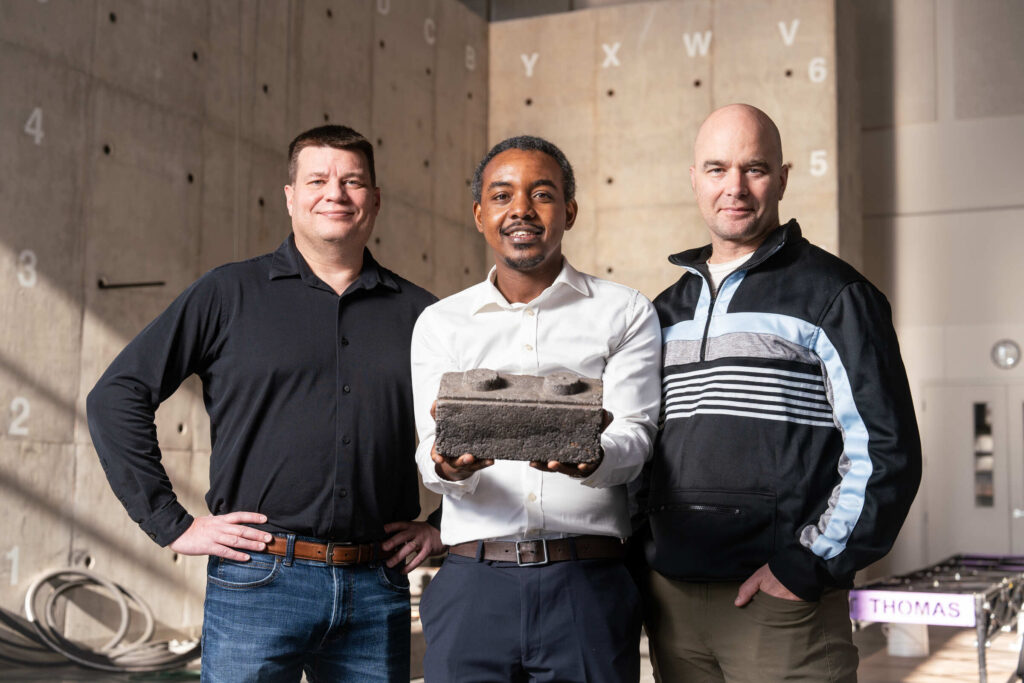All right, so you’ve got a great idea for a new club at St. Thomas. A point of passion that you think other Tommies would be interested in doing with you. Maybe it’s fishing. Or tabletop gaming. Or photography. Or Capoeira.
(Actually, if you’re interested in any of those things there are already clubs on campus for them, along with about 140 other clubs; that photo above is of the Capoeira club performing in April. So, if you’ve got a great idea for a new club on campus, first check the club directory.)
But let’s say your idea isn’t on there. Then Assistant Director of Campus Life Ed Kim is your man. He’s the first stop for students to work out what they want their club to be and do.
“The first official step for approval is with the student organizations committee, and they look at all the new clubs,” Kim said. “But before you get to that step you meet with me to help refine your idea into a viable club. The mission statement is the driving force of that conversation. What is that thing your club wants to be, why do you want to do it and how is this an involvement opportunity on campus?
“It’s about creating a sense of community around that idea, that shared identity,” Kim added. “And all clubs … have to support the mission of the school. How does this support the mission, support students around campus? Does it help us advance the common good? Think critically? Act wisely?”
Senior Rachel Haas went through the development process with Kim last year when she wanted to start Chi Alpha at St. Thomas, a Pentecostal Christian group that has chapters on college campuses around the U.S. After meeting with Kim and fleshing out the club’s constitution, Haas and other club leaders made their pitch to the student organizations committee of Undergraduate Student Government (USG). Their first time through, Chi Alpha’s application was vetoed, which Haas said was a good thing because it forced them to figure out what the differentiating factor for this chapter would be at St. Thomas.
“That critical thinking [that came from getting denied] really played a role in trying to analyze what it meant on this campus,” Haas said.
Haas and others developed a plan that went beyond the initial hope that the club would facilitate faith growth; the new plan included a focus on the enactment of justice, specifically surrounding the global issue of human trafficking. The second time the club was approved by the student organizations committee and went on to receive final approval from the full USG body. Chi Alpha started activities this fall.
Every new potential club must go through this process, which comes with certain stipulations: Clubs must have at least 10 members; a full-time faculty or staff member must serve as the club’s adviser; and every club member must do at least two hours of service per semester. Once approved, clubs can also apply each year to USG for funding.
With their status solidified, new clubs can begin recruiting members. Kim said the fall and spring activity fairs are the main routes for this, and Haas said Chi Alpha has used social media to promote interest too.
“Getting people to come was a trickier challenge,” Haas said. “It’s been a lot of word of mouth.”
Kim said making sure a club is sustainable beyond the initial group of founding students is important as well.
“My goal isn’t to have great new clubs forming and then others going away,” he said. “The point of the approval process and vetting them is making sure they’re sustainable from year to year. If seniors have this great idea but there’s not that plan for when they graduate to pass it on, that’s my role to help infuse it with … plans of how we pass it on next year. How can we bring in juniors, sophomores – even freshmen – and make them part of that leadership?”
The number of new clubs changes from year to year (Kim said one recent year had nine, the year after three), but St. Thomas has seen a steady growth recently to the more than 140 clubs of 2016. Even with so many available options, the opportunity and support for new clubs to form is important to the student body, Haas said.
“As a freshman and sophomore, I struggled to find the right group for me,” she said. “I heard about all the great things [Chi Alpha] was doing [at the University of Minnesota] and thought, ‘That would be great to be part of at St. Thomas.’ … I want it to be at my school. And now it is.”







